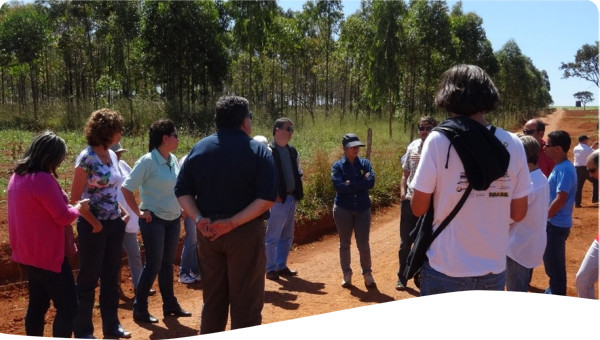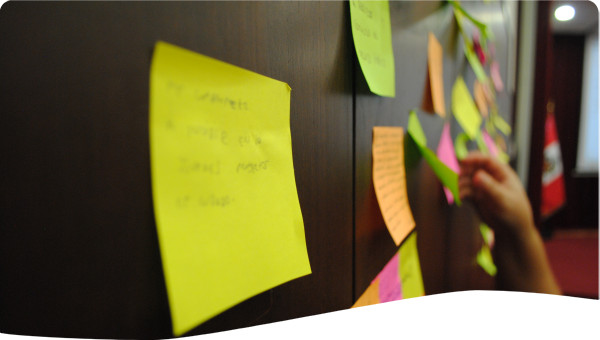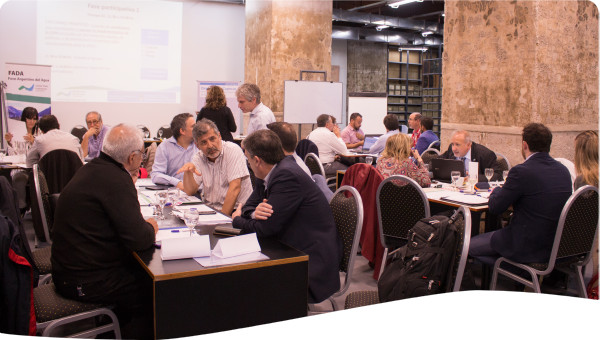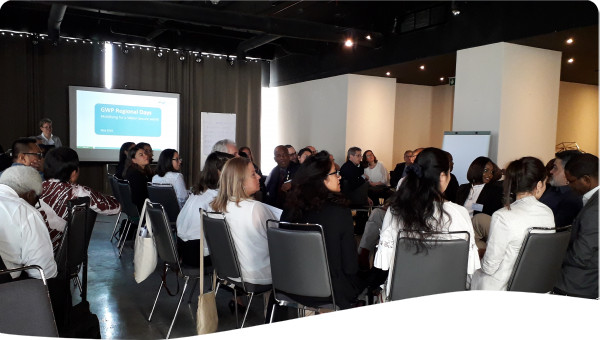To identify the best approach to increase public participation in the implementation of the EU Water Framework Directive, the EU funded research project River Dialogue was initiated, testing two specific participatory methods of citizens’ involvement. This case illustrates the means by which local people, who are not specialists, can take part in discussions and decision-making process of complex environmental issues.
During the last decade, a rapid growth of interest in public participation has been seen in a wide range of sectors and public participation has gained wide recognition as a key principle for modern environmental resource management. Especially difficult was/is to start public participation in post-soviet countries, where there is no long history of deliberative democracy. The major problem is that among water managers there is not enough knowledge about practical and effective approaches to public participation and empowerment, and about tools that enable the public to make informed decisions in water management. There is also little awareness about different methods and channels how to involve various stakeholder groups and this is especially true when talking about new EU member countries/new democracies.
In order to respond to these new challenges River Dialogue project was started with participation of Linköping University (Sweden), Free University Amsterdam (the Netherlands) and NGO Peipsi Center for Transboundary Cooperation (Estonia). The project was implemented in 2003-2004 and was aiming to identify the best approaches to increase public participation in the implementation of the EU Water Framework Directive. The project also aimed to support the discussion between the scientists, decision-makers involved in managing European waters, and the public in understanding the challenges of water use and protection.
Two specific participatory methods of citizens’ involvement - focus groups and citizens’ juries - were tested.
A Focus group is a planned discussion among a small group of people on a specific topic. Obtained information is asked on social interaction, and the group setting allows individuals to use the ideas of others as cues to elicit their own views more fully. Nine focus groups on water management issues with all major stakeholder groups in the Emajõgi river basin were conducted in 2004.
A Citizen’s Jury is a randomly selected panel of citizens, which meets for 3-5 days to carefully examine an issue of public significance through discussions, examinations of information, and questioning of witnesses. The members of the jury are given the chance to hear views and receive information from a variety of expert witnesses. Finally, the jury presents their recommendations to the problem issue.
The project objectives were:
- To study whether/and with what kind of tools it is possible that the citizens take counsel together about what policies and environmental decisions ought to be taken in their watershed.
- To identify the best approaches to increasing public empowerment and involving the public in the implementation of the EU Water Framework Directive and river basin management plans.
- To carry out focus groups and citizen juries in three European river basins: the Motala Stroem in Sweden, IJsselmeer - in the Netherlands and the Emajõgi River in Estonia.
- To develop guidelines for the organization of citizens’ juries and other forms of participation as part of the development and implementation of the EU Water Framework Directive.
In 2003, Peipsi CTC conducted 9 focus groups on water management issues with the all major stakeholder group in the Emajõgi river basin, Estonia. Our interviews with environmental organizations, schoolchildren, owners of the recreation homes, fishermen, farmers, officials from local authorities, water recreation groups, NGOs and with people from the water tourism companies concentrated on understanding and possible influence of different stakeholders on water management issues. A Citizen’s Jury in Emajõgi River region was organized on the topic of water transportation, based on the results of the focus groups and several discussions with environmental authorities of the region. The question was: What would be the compromise between the interests of environmentalists, entrepreneurs, and local inhabitants? The citizens ́ jury took place for two days, in November 2003, with participation of 14 randomly selected people from the river region.
The use of focus groups and citizens ́ juries in water management planning was the first attempt of this kind in Estonia. The River Dialogue project results make us to believe that these methods can be successfully used in environmental management.
Focus groups proved to be an effective approach that could be used on the water management planning stage to collect opinions of stakeholders about major issues in a river basin. Focus groups also helped to increase an awareness of water issues among participants and secondly participants had an opportunity to voice their opinions.
The Jury evaluation showed that the way people reached the recommendations has to be considered at least of similar importance as the recommendations themselves. The feeling that someone is so much interested in the opinions of citizens’, came as a surprise to a number of participants – it also evidences the fact that the ideas and methods of public participation are not yet wide-spread in Estonia. The case describes how local people, who are not specialists, can take part in discussions and decisionmaking process of complex environmental issues. It should be stressed that participation does not just happen. On the contrary, it must be actively encouraged, and river basin authorities must be prepared to devote time to careful planning and to invest meaningful financial and human resources. The process could be quite time consuming and expensive in the short-term, but it will save money in the longterm.
The case shows that new innovative approaches are necessary to be used to implement EU WFD under the IWRM principles.
An important aspect of a Citizen’s Jury is that it promotes political dialogue aimed at mutual understanding, which does not mean people will agree, but rather that they will be motivated to resolve conflicts by argument rather than other means.
The way people reached the recommendations has to be considered at least of similar importance as the recommendations themselves. The feeling that someone is that interested in the opinions of citizens’ came as a surprise to a number of participants.
The citizens’ jury proved very well that people, when thinking together in a pleasant constructive atmosphere, prevent conflicts and, by way of compromises, reach solutions. And these people do not all have to be experts.
 Case studies
Case studies



